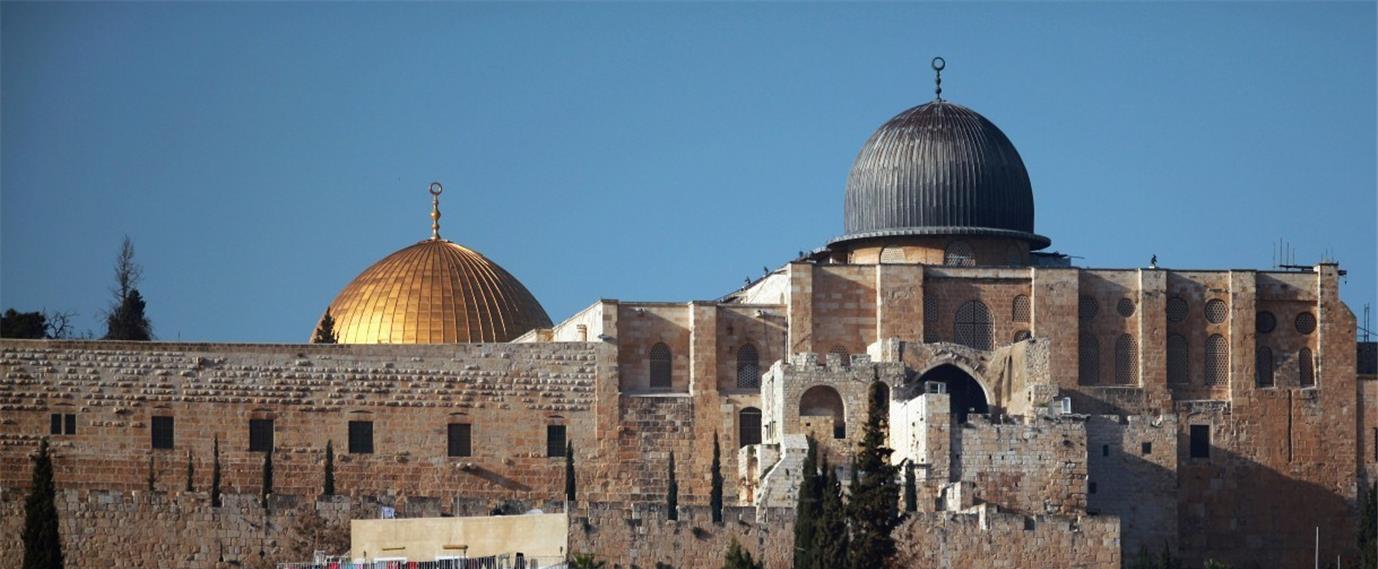سادت الساحة الإعلامية العربية في الأيام الأخيرة حالة ملحوظة من البلبلة التي نتجت عن تناول متباين لقرار اليونسكو –منظمة الأمم المتحدة للتربية والعلم والثقافة- حول المسجد الأقصى وعلاقته بالتراث الإسلامي. فطريقة تغطية المنصات الإعلامية الإخبارية المختلفة لهذا الخبر جعلت عدة أسئلة مهنية تطفو على السطح، تحديداً في ما يتعلق بالمصادر وإشكالية الترجمة ودور منصات الإعلام التفاعلي في تغذية حالة الجدل.
كيف تناول إعلام الاحتلال الإسرائيلي خبر اليونسكو؟
من خلال إجراء مسح عام على الصحف الإسرائيلية الإلكترونية، يظهر الاختلاف في طريقة تناول الخبر بالصحف المختلفة، وجاء ذلك الاختلاف انعكاساً جزئياً لتوجه هذه الصحف وعلاقتها بالحكومة وسمعتها المهنية. غالبية الصحف الإسرائيلية، خاصة الصحف الشعبوية وذات التوجه اليميني أو الديني أو الموالية بوضوح لحكومة نتنياهو، تناولت الخبر على أنه "مفاجئ" بالرغم من وجود تمهيدات وتوقعات سابقة بمرور القرار الذي يعتبر المسجد الأقصى وحائط البراق تراثاً إسلامياً.
على سبيل المثال، كتبت صحيفة "معاريف" العبرية في عنوان الخبر: "اليونسكو: لا علاقة بين الشعب اليهودي والأماكن المقدسة في القدس"، وفي موقع "نيوز1" جاء: "اليونسكو: لا علاقة لإسرائيل بجبل الهيكل (أي المسجد الأقصى)"،وجاء في موقع "كيكار هشابات" ذي التوجه الديني: "لا يوجد علاقة بين اليهودية والحائط الغربي (حائط البراق)".
عناوين حذرة
أما في صحيفة هآرتس وموقع واينت التابع لصحيفة "يديعوت أحرونوت" فقد وردت العناوين بشكل حذر أكثر، مثل: "اليونسكو تبنى قراراً يشكّك بعلاقة اليهودية بحائط المبكى (أي حائط البراق)"، و "رسالة اليونسكو لإسرائيل: حتى وإن تجاهلتم الفلسطينيين، القدس هي أرض محتلة"، وأخذت العناوين بعداً آخر في موقع "المونيتور"، إذ جاء "هكذا تم تجنيد الحائط الغربي في الصراع ضد تقسيم البلاد"، بمعنى أن قرار اليونسكو سياسي يهدف لحفظ الوضع القائم في القدس وعدم تقسيمها عبر التأكيد على حائط البراق كتراث إسلامي.
فخّ العناوين ومشكلة "القارئ العجول"
وهنا يذكر أن العناوين التي وصفت القرار بأنه ينكر علاقة اليهود كديانة قصدت إعطاء القضية صبغة دينية وإبعاد القارئ العجول عن التركيز في متن الخبر، الذي أوضح البعد السياسي للقرار وتناول بوضوح الخلاف الدائر حول استخدام القرار للمسمّيات الإسلامية للأماكن المقدسة في القدس بدلاً من المسمّيات اليهودية والإسرائيلية، هذا إلى جانب تنصيص بعض المسميات اليهودية الواردة.
بهذه الطريقة، أي بتحويل النقاش إلى ديني بدلاً من كونه سياسيا، كان من السهل تعبئة الرأي العام الإسرائيلي ضد القرار ليتسق مع رد الفعل الرسمي لحكومة الاحتلال، التي سعت لجمع الإدانات من قادة سياسيين دوليين ولمهاجمة اليونسكو ودفعها للتراجع عن القرار أو التصويت مجدداً عليه.
إن غياب المسمّى اليهودي للأماكن المقدسة في القدس، والعناوين المباشرة التعبويّة كانت كفيلة بتوجيه الرأي العام –الذي يتشكل من قرّاء عجولين- نحو نقاش ديني مشحون، اضطر مديرة اليونسكو نهايةً لتوضيح ما لم يكن منكراً في نصّ القرار، وهو أن القدس مدينة مقدسة لجميع الأديان بما فيها اليهودية. كما أبعدت الأضواء عن النقاط الأساسية التي يناقشها القرار، وهو إدانة الممارسات والانتهاكات الإسرائيلية للمسجد الأقصى وما حوله عن طريق الحفريات والاقتحامات والتضييق على المصلّين.
ارتباك الإعلام التفاعلي
يعتمد الإعلام الجديد، التفاعلي بطبيعته، على كسر النظرية التقليدية في الاتصال، وهي أن الرسالة الإعلامية تسير باتجاه واحد من القناة الإعلامية إلى المتلقّي، وبالتالي يقع التأثير بالضرورة عليه. وبكسر الإعلام التفاعلي لهذا القالب أصبحت الرسالة تسير باتجاهين، وبالتالي يتأثر كلا الطرفين بما يقول الآخر.
في الوضع الاعتيادي، يعتبر هذا التجديد محموداً كونه زعزع هيمنة الوسيلة الإعلامية على المعلومة وجعل المتلقي شريكاً في صناعة المحتوى ومؤثراً فيه وناقداً له. لكن، وسط الأحداث المثيرة للجدل يصبح سؤال "من يخبر من؟" مربكاً، وقد يقع الإعلام التفاعلي ضحية للسرعة والمواكبة ويصبح شريكاً في البلبلة. من هنا تطرح التساؤلات حول طبيعة مساهمة الإعلام التفاعلي في الصحافة كناقل مهنيّ للخبر.
في قضية اليونسكو والجدل حولها، كانت "أ ج " المنصة الرقمية التابعة لشبكة الجزيرة انعكاساً لحالة الإرباك التي سادت عناوين الصحف ووسائل الإعلام. ففي البداية –ونظراً لاتباعها خط الإنتاج السريع- نشرت فيديو إخباريا قصير ا يحمل الخبر كما جاء في عناوين الصحف العالمية والعربية، أي "اليونسكو": لا ارتباط دينياً لليهود بالمسجد الأقصى وحائط البراق"، على ما يبدو دون الرجوع للمصدر الأصلي – وهو نصّ قرار اليونسكو- للتأكد من أن موقف اليونسكو تمت صياغته بهذا الشكل رسمياً.
لاحقاً، وكونها منصة تفاعلية تهتم بتعليقات المتابعين وترصدها أولاً بأول، أصدر ت فيديو آخر يوضح للمتابعين الخطأ الذي وقعت فيه القناة باستخدامها العنوان المذكور، وذلك بعد تنبيه أحد المعلقين للقناة لأن القرار لم يذكر نصّاً "اليهود" ولم ينفِ علاقتهم بالقدس "بشكل مباشر" بل تناول القضية من بعد سياسي.
إن الفخ الذي تقع فيه عادة منصات الإعلام التفاعلي يُنصب بمجرد أن ترضخ (المنصات) لسرعة إنتاج الخبر على حساب دقة المعلومة، مع الأخذ بعين الاعتبار أن أحد أهداف تلك المنصات هو التفاعل مع رغبات الجمهور ومواقفه، بل و أيضا مع ارتباكه واللبس الذي يقع فيه.
المثال السابق يلقي الضوء على إشكالية اعتماد منصات الإعلام التفاعلي على عناوين الصحف كمصدر للأخبار دون التدقيق في متن الخبر أو دون الرجوع للمصدر الأصلي، نتيجة لارتكازها بشكل أساسي على الإنتاج السريع وضرورة مواكبة الأحداث بشكل فوري.
الإعلام التقليدي.. لا يعتذر
في حين تتيح طبيعة المنصة الرقميةوالتزامها بمبدأ التفاعل مع الجمهور لوسائل الإعلام التفاعلية التعديل والتراجع وإعادة صياغة الخبر، كما حصل في حالة "أ ج " (وهذا يحتاج الكثير من الشجاعة) لا تفعل وسائل الإعلام التقليدية ذلك. فالإعلام التقليدي، سواء أكان مرئياً أم مكتوباً - على ما يبدو- كبّل نفسه داخل مبدأ "الرسالة الاعلامية باتجاه واحد"، وحسم إجابة سؤال "من يخبر من" حتى وإن اتضح لاحقاً أن الخبر الذي وصل الجمهور عبرهم - لم يكن دقيقاً.
في حالة اليونسكو، وقعت الصحف التقليدية العربية في فخ العناوين كذلك، فغالبية ما اطّلعتُ عليه من عناوين، بما في ذلك عناوين موقع الجزيرة نت الذي كرر نفس الفكرة. فجاء في أحد العناوين: "لا ارتباط دينياً بين اليهود والمسجد الأقصى"، وكذلك: "ارتياح فلسطيني لنفي علاقة اليهود في المسجد الأقصى".
تأتي هذه العناوين حاسمة في حين أن اليونسكو بقراره وبيانه وتوضيحاته اللاحقة لم ينفِ علاقة اليهود كديانة بالأماكن المقدسة في القدس، لكن قلة المرونة التي يتسم بها الإعلام التقليدي - بالرغم من استخدامه منصات إلكترونية قادرة على أن تكون تفاعلية إلى حد ما كونها قابلة للتعديل وإعادة النشر- يجعل من الخبر المنشور ثابتا، والاعتذار عن الخطأ صعبا.








































